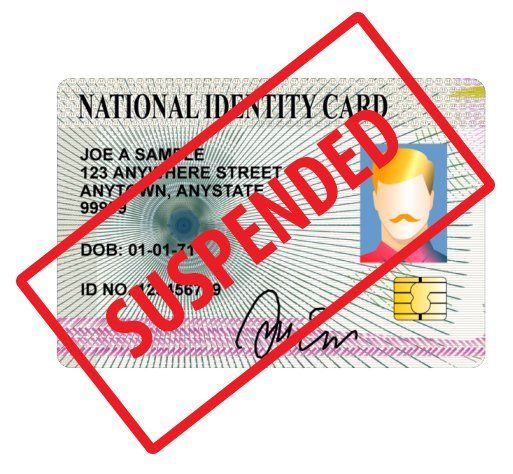Representation for DUI Law & Traffic Offenses in Terre Haute, IN & Surrounding Areas
DUI,
also known as driving under the influence, is now commonly used a
generic term that encompasses a variety of specific charges,
including the following:
- Operating a Vehicle While Intoxicated (OVWI)
- Operating a Vehicle while Intoxicated Endangering a Person (OVWI Endangerment)
- Operating a Vehicle with an Alcohol Concentration of .08 or More (Operating with ACE of .08)
- Operating a Vehicle with an Alcohol Concentration of .15 or More (Operating with ACE of .15)
- Operating a Vehicle with a Schedule I or II Controlled Substance in Body
DRIVER'S LICENSE SUSPENSION
If
you are charged with a DUI, then you need representation. A DUI
charge will result in the suspension of your driver's license.
I am often asked, “How can they take my driver's license when I haven't been convicted of anything?” This is a fair question.
Under Indiana law, being charged with DU triggers an administrative suspension of your driver's license. All it takes is for a judge to find that there is probable cause to support the charge. Having a driver's license is considered a privilege, not a constitutional right. Thus, the Indiana appellate courts have upheld the law that mandates an administrative suspension of driving privileges upon a finding of probable cause.
The driver's license suspension can often times be avoided, usually by having an ignition interlock device placed in your vehicle. You can also challenge the probable cause for the stop. Depending on the circumstances, it may also be possible to resolve the case to an amended charge that does not involve a driver's license suspension.
I am often asked, “How can they take my driver's license when I haven't been convicted of anything?” This is a fair question.
Under Indiana law, being charged with DU triggers an administrative suspension of your driver's license. All it takes is for a judge to find that there is probable cause to support the charge. Having a driver's license is considered a privilege, not a constitutional right. Thus, the Indiana appellate courts have upheld the law that mandates an administrative suspension of driving privileges upon a finding of probable cause.
The driver's license suspension can often times be avoided, usually by having an ignition interlock device placed in your vehicle. You can also challenge the probable cause for the stop. Depending on the circumstances, it may also be possible to resolve the case to an amended charge that does not involve a driver's license suspension.


CONVICTION FOR DUI
A
DUI conviction can result in the following consequences:
A DUI is considered a major violation for purposes of Indiana's Habitual Traffic Violator Law, and 3 DUIs within a 10 year period can result in a driver's license suspension for a period of 10 years as a habitual traffic violator.
- Jail time
- Probation
- Community Service
- Completing a Substance Abuse Program
- High Risk Insurance
A DUI is considered a major violation for purposes of Indiana's Habitual Traffic Violator Law, and 3 DUIs within a 10 year period can result in a driver's license suspension for a period of 10 years as a habitual traffic violator.
EVENTS LEADING UP TO DUI CHARGE

WE CAN HELP
In
the case of a traffic stop, there can be a number of issues,
including:
If a police officer improperly administers the breath test, then that test result may be excluded from evidence because the officer's failure to follow the rules established by the Indiana State Department of Toxicology affects the reliability of the test results.
At Edward McGlone Law Office, we examine the State's evidence and look for mistakes that the police have made so that we can use those mistakes to your advantage.
Edward McGlone has over 25 years experience with DUI cases. Put his experience to work for you.
- Was the stop legal?
- What was the basis for the stop?
- Were standardized field sobriety tests properly administered?
- Did the police officer have probable cause to offer a chemical test?
- Was the chemical test properly given?
If a police officer improperly administers the breath test, then that test result may be excluded from evidence because the officer's failure to follow the rules established by the Indiana State Department of Toxicology affects the reliability of the test results.
At Edward McGlone Law Office, we examine the State's evidence and look for mistakes that the police have made so that we can use those mistakes to your advantage.
Edward McGlone has over 25 years experience with DUI cases. Put his experience to work for you.








